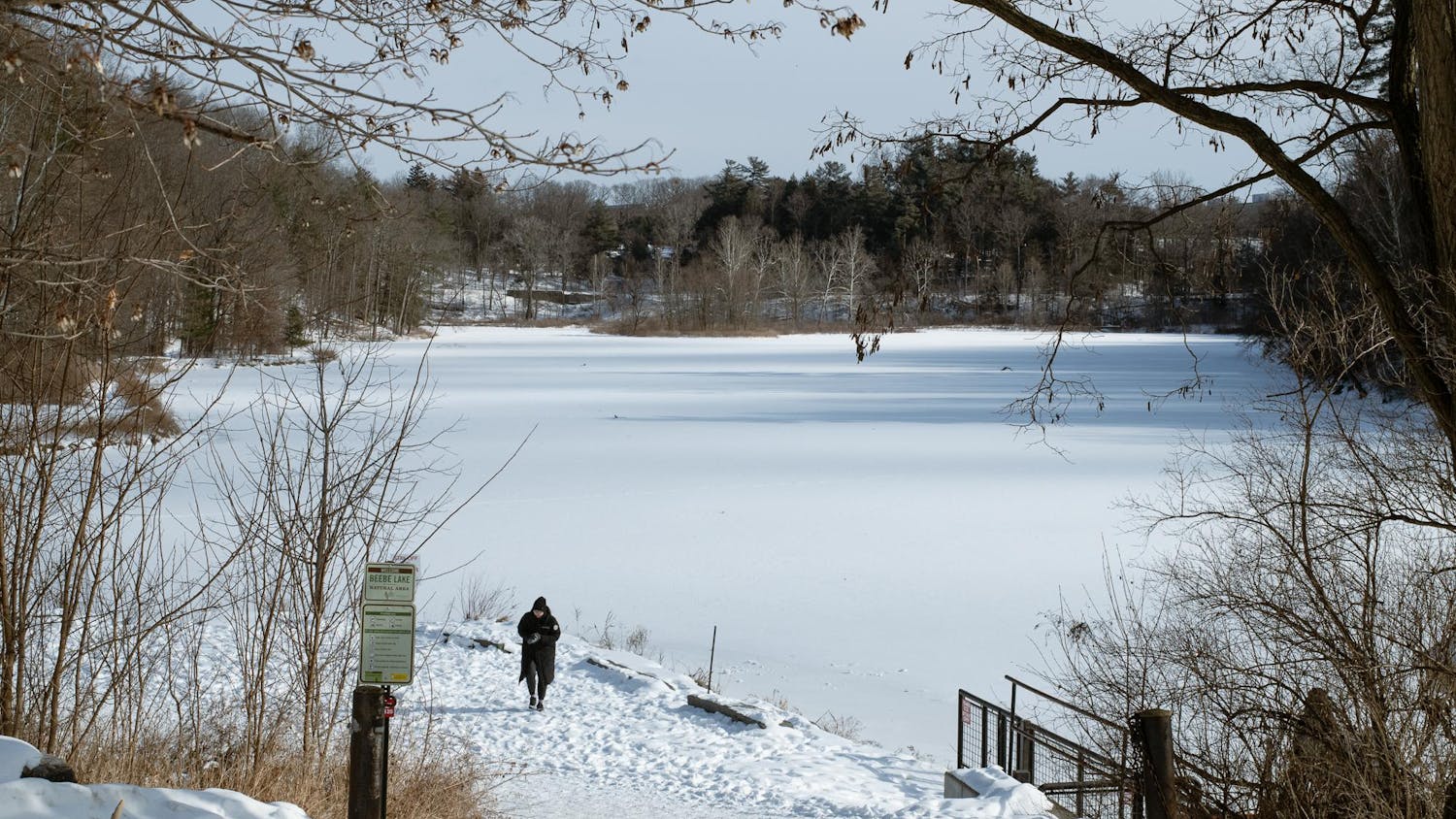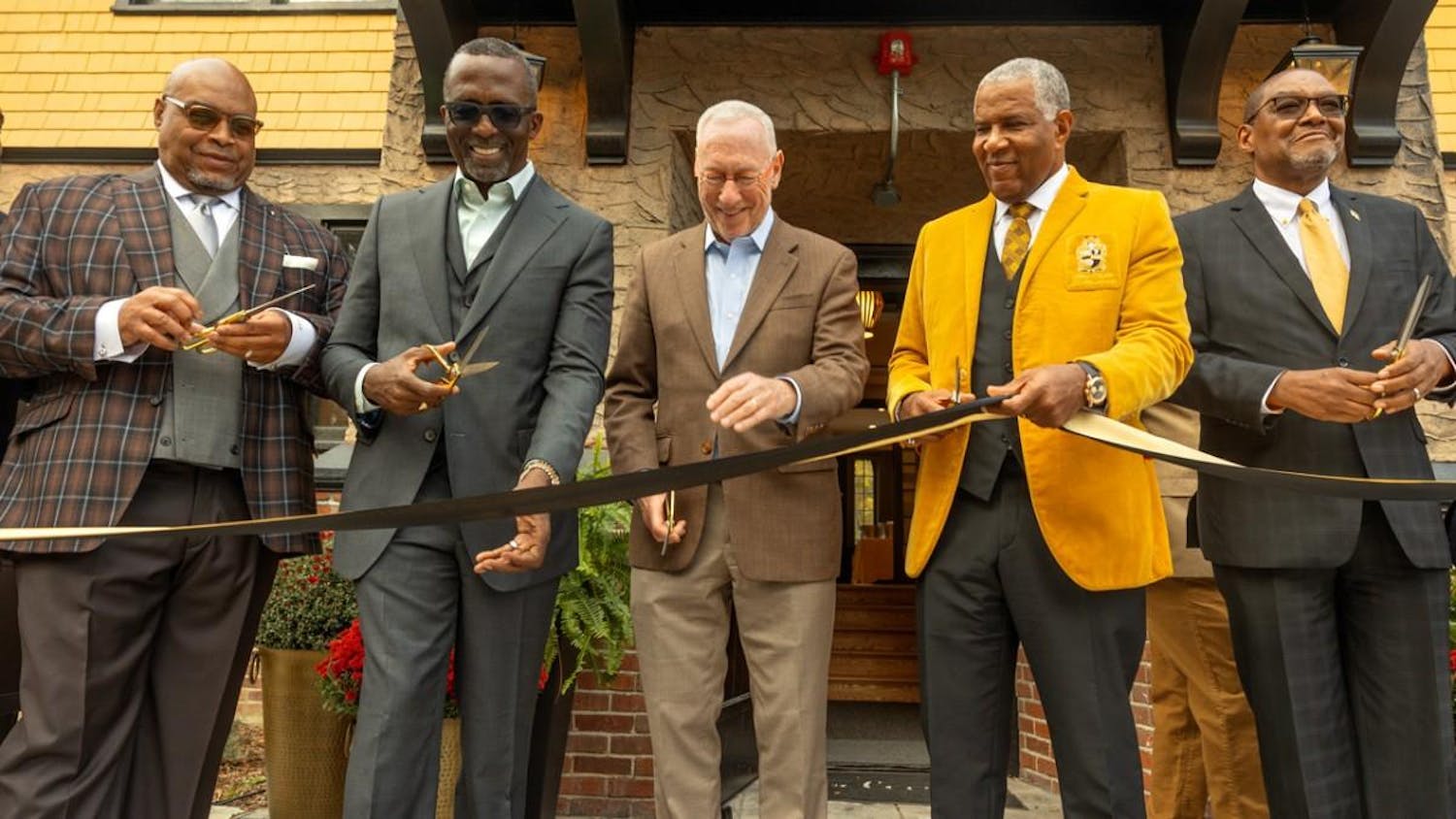Interim President Hunter Rawlings — who disclosed his vision for a more unified “One Cornell” earlier in the semester — reemphasized the need for collaboration among the University’s campuses and schools in his annual State of the University address Friday.
In the address, held at the Cornell Trustee-Council meeting, Rawlings explained that strengthening the connection between Cornell’s three campuses will help bridge the divide between upstate and downstate New York, “two completely different states in one.”
“Cornell is the only large institution that bridges that divide with enduring relationship with the state of New York and now the City of New York,” Rawlings said. “Before now, we have been perceived as a university essentially located in upstate New York. With the advent of Cornell Tech, we cannot be perceived that way any longer.”
Cornell Tech, on Roosevelt Island, is beginning a life that is “inextricably tied to Ithaca” and will enable the University to build strong departments in both campuses via direct interactions among the faculty, according to Rawlings.
The president also introduced “The Hinge Project,” a fund that will allow Ithaca faculty interested in Cornell Tech research to “put a foot” on Roosevelt Island while “keeping a foot” in their Ithaca department.
Like Cornell Tech, Weill Cornell Medical College in New York City has also been strengthening its ties with the Ithaca campus, according to Rawlings. As an example of this partnership, he cited an initiative by Dr. Monica Safed — who began her tenure as chief of Weill’s division of general internal medicine in January — and will bring Cornell medicine to the rural areas of the Appalachia.
Rawlings added that departments in the Ithaca campus have been making efforts to utilize resources in New York City, all of which will take “Cornell from upstate to downstate or downstate to upstate.”
In addition to collaboration among the three campuses, Rawlings’s vision of “One Cornell” includes crosstalk between the deans and faculty in the University’s seven undergraduate colleges.
He emphasized the role that the College of Arts and Sciences curriculum review will play in this collaboration, as the other colleges “depend on the arts college for the foundational pieces of their curriculum.”
Rawlings, who has frequently shared his stance on the importance of a liberal education, reiterated its significance in his address, saying that “national discourse has descended to the language of the gutter.” He added that teaching students to become critical thinkers will address issues of “political and internet nonsense,” “vapid consumerism and celebrity culture,” and “ethnic and class divide in the U.S.”
“An education without the arts and the humanities is like a frame without a picture,” Rawlings said. “[Liberal education] shows us ‘all the light that we cannot see.’”
The address was followed by a faculty panel from the College of Arts and Sciences on the discussion of thme curriculum review. Panelists included Prof. Tracy McNulty, French and literature, Prof. Julia Thom-Levy, physics, and Prof. Verity Plank, classics.

Rawlings: ‘One Cornell’ Will ‘Bridge Divide’ Between Upstate, Downstate New York
Reading time: about 3 minutes
Read More










